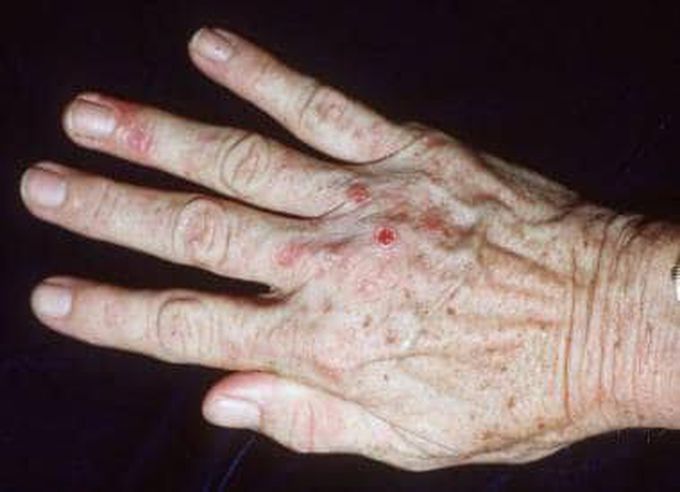


Porphyria Cutanea Tarda
Porphyria cutanea tarda (PCT) is a rare disorder characterized by painful, blistering skin lesions that develop on sun-exposed skin (photosensitivity). Affected skin is fragile and may peel or blister after minor trauma. Liver abnormalities may also occur. Who gets and what is the cause of porphyria cutanea tarda? PCT is caused by a defect in a liver enzyme uroporphyrinogen decarboxylase (UROD). It is hereditary in one-third of patients when there is usually a family history of the condition and symptoms begin in early adult life. Common symptoms include: blisters on skin that's exposed to the sun, including the hands, face, and arms. photosensitivity, which means your skin is sensitive to the sun. thin or fragile skin. increased hair growth, usually on the face. crusting and scarring of the skin. redness, swelling, or itching of the skin.

